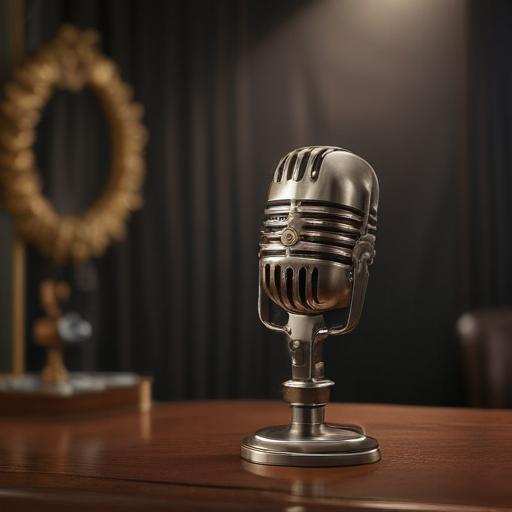From Sanremo to Fantastico, the host who did it 13 times reshaped the history of Italian television. A pianist and an extraordinary talent scout, Pippo Baudo embodied television itself, the face Italy recognized for decades as it moved from black-and-white to color, from postwar austerity to today’s fast-paced world. His footstep was bold, his presence expansive, and even in imitators’ sketches he left an unmistakable mark.
Giuseppe Raimondo Vittorio Baudo, known to everyone as Pippo Baudo or “SuperPippo,” has died at age 89. He was the quintessential television figure in Italy, a national icon who guided audiences through the evolution of the medium, from Canzonissima to Sanremo, from Fantastico to Domenica In, shaping a generation of viewers and performers alike.
Baudo’s beginnings trace back to the 1960s. The Rai commission described him early on as having a “discreet presence, suitable for smaller shows,” a verdict that barely hinted at the force he would become. A Sicilian from Militello, born into a comfortably cultured family, Baudo was the only child of a lawyer and a homemaker. After a classical education and a law degree, he followed a passion for theater and music, working as an actor, writer, and pianist before stepping onto television in the early 1960s. He remained a constant presence on Rai, even as the medium and the country changed around him, never abandoning the poise and adaptability that defined his approach.
Over a career spanning six decades, Baudo hosted around 150 programs and earned 14 Telegatti. He remained Rai’s emblematic face from his first appearances to the end of his long run, even after a brief stint with Fininvest during the era of Silvio Berlusconi, an episode he navigated with the same sense of style that characterized his work. His colleagues and fans have often noted the blend of Mike Bongiorno’s screen presence, Corrado’s wit and warmth, and Enzo Tortora’s cultural breadth in Baudo’s own persona. A Catania native who supported the local team and admired Juventus, Baudo even once rode a motorcycle onto a festival stage with Valentino Rossi to promote helmet safety—an anecdote that has become part of his legend.
Baudo was not just a presenter; he was a talent scout who helped launch and nurture a generation of Italian stars. He was the first to recognize and cultivate talents who would go on to become household names: Al Bano, Heather Parisi, Lorella Cuccarini, Loretta Goggi, Tullio Solenghi, Laura Pausini, Eros Ramazzotti, Andrea Bocelli, Giorgia, and many others. At the outset of their remarkable careers, their paths were shaped by Baudo’s mentorship and the opportunities he helped create. He often joked about his own blind spots too, famously admitting that he once rejected Fiorello at an audition, a decision he would later joke about with the Neapolitan showman, recognizing that in television, intuition is a powerful but fallible guide.
Baudo’s life off-screen was as public as his work. He was married twice, first to Mirella Adinolfi and later to Katia Ricciarelli, and he had two children, Patrizia and Alessandro, whom he could not acknowledge at a time because the mother was married. The anecdotes behind these lines—like the season-long humor about stagecraft and the occasional playful misdirection—were part of the mosaic that made Baudo both beloved and respected in Italian culture. He even sparked playful imitations, notably by Gigi Sabani in the 1980s, who claimed Baudo’s influence on the industry; Baudo’s response was characteristically generous and good-humored.
Baudo’s legacy lies in the unique way he built television as a shared national experience. He bridged the worlds of culture and mass entertainment, proving that culture could be accessible to everyone and that television could be a forum for art, humor, and human connection. He defined a style—graceful, measured, and improvisational—that invited audiences to trust the presenter as a guide through ever-changing entertainment landscapes. In that sense, Baudo didn’t just host shows; he helped invent a mode of Italian television that remains a reference for current and future generations.
Summary: Pippo Baudo’s death closes a defining chapter in Italian television. A pianist, actor, cultural ambassador, and unmatched talent scout, he hosted Sanremo 13 times, shaped dozens of careers, and helped transform TV into a national cultural touchstone. His elegant presence, generosity, and knack for recognizing talent left a lasting imprint on Italy’s screen and stage, making him a figure who will be remembered as much for his character as for his work.
Editor’s note: Baudo’s career offers a powerful blueprint for public-facing media figures today—balancing prestige with accessibility, mentoring rising stars, and carrying a showman’s flair with a journalist’s discipline. A possible tribute could include a retrospective timeline highlighting his key programs, a gallery of the stars he mentored, and quotes from colleagues about his approach to television as a public service.
If you’d like, I can draft a short sidebar highlighting the major milestones of Baudo’s career or assemble a concise timeline to accompany the article.
